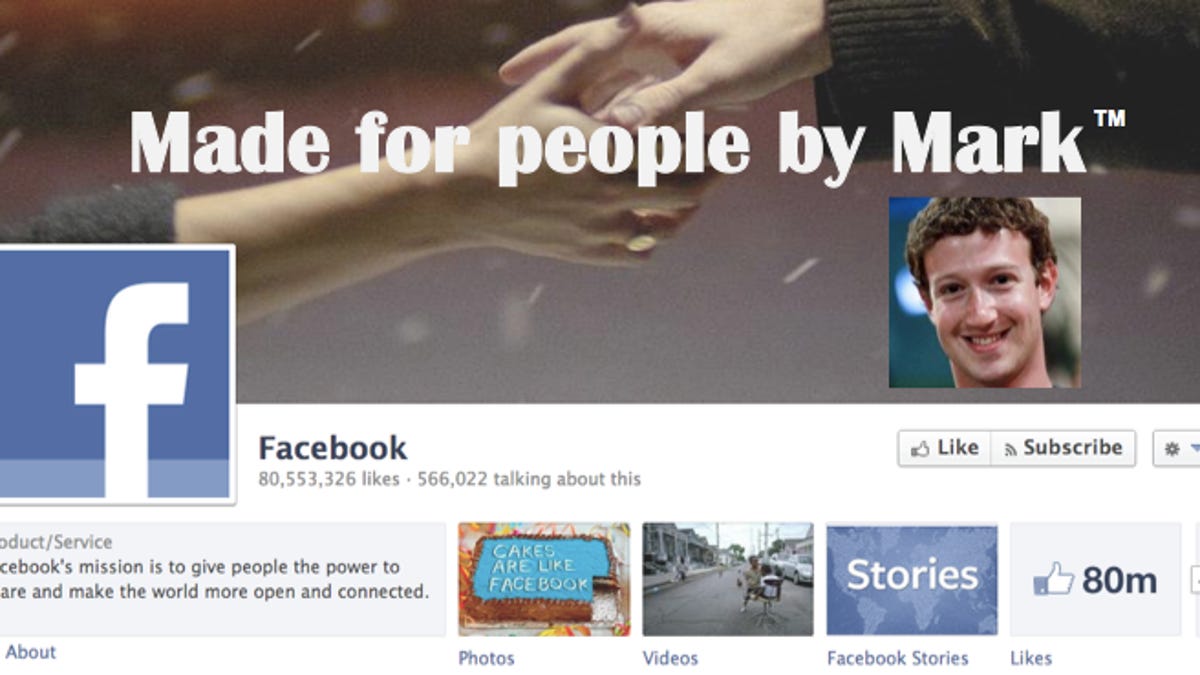Zuckerberg mobilizes Facebook for 5 billion users and the Internet of things
To achieve its mission, look for Facebook to focus on attracting more developers and ingesting more data to deliver more precise and lucrative payloads to the DNA of its people.

If Facebook had a tagline for this stage in its evolution, it would be "Made for people by Mark." It flows out of the mission statement -- "to give people the power to share and make the world more open and connected" -- and the co-founder Mark Zuckerberg's iron grip on where Facebook is heading. It also drives Facebook's effort to design stuff, including ads, that its billion-plus customers will really "like," and share with their friends. And, it helps keep the legion of Facebook engineers from getting preoccupied with innovations that no human could use without a manual.
For CEO Zuckerberg, people, along with engagement metrics, are the ingredient that matters in his quest to colonize the planet for Facebook. Or, as Facebook Vice President of Marketing and Business Partnerships David Fischer channeled in a recent interview, "People are the DNA. They are the operating system by which we make most every decision. It's the core of our DNA."
In his letter to investors prior to Facebook's IPO, Zuckerberg wrote his goal to "rewire" the way people spread and consume information via the social graph. The social graph isn't just an engineering schematic with a billion nodes and petabytes of data to mine for revenue, it's a billion people with real identities making trillions of connections on Facebook's proprietary platform.
Like a fashion mogul, Facebook made by Mark is intent on dressing, or rewiring, the inhabitants of planet Earth, smartphones in hand, in Facebook blue. He is zeroing in the estimated 5 billion people who will be connected to the Internet with sophisticated mobile devices by 2020, sharing much more information about people, places, and things. Even today, there is an estimated 6 billion mobile subscriptions and 75 percent of the world's population has access to some kind of mobile phone, according to the World Bank.
"One of the big trends we see is that the amount that any individual shares in a given year seems to be growing at this exponentially increasing rate. It is this social networking version of Moore's Law. What that suggests to me is that if we expect that this rate is going to double every year, then look out ten years, 2 to the 10th is 1024, ten years from now people will be sharing about a thousand times as many things," Zuckerberg said in an interview last month.
At the root of Zuckerberg's exponential growth vision is the increasingly powerful combination of mobile and social. It's the connective tissue for wiring up the digital and physical spaces that the people inhabit as access to the Internet becomes ubiquitous and super fast.
While Zuckerberg was slow to recognize that mobile would be paired with social, now the Facebook axiom is that mobile is inherently social and everything is being transformed by social. It's Facebook's equivalent to Descrates' "I think, therefore I am," or more in Facebook engineering terms:
Facebook has a ways to go to build the mobile side of the equation, which is why Zuckerberg and team are so invested in the mobile+social and moving as fast as possible to become more mobile. Of the 1 billion users, 600 million per month access Facebook via mobile devices, and 126 million on mobile devices only. Facebook's mobile incarnation is supported on more than 7,000 devices and in 27 languages. Desktop users have a 40 percent likelihood of visiting the service on a given day, but they are 70 percent more likely to access it via a mobile device, according to Facebook.
If people are the design center for Facebook, money is the output that sustains the vision and keeps shareholders happy. So far, extracting money from the Facebook living on peoples' pockets has been more difficult than adding new people. Mobile Facebook doesn't yet monetize as well as the Web version, and much of the people growth is coming from countries that bring lower yields than in North America. In the last quarter, 14 percent of the Facebook's ad revenue came from mobile.
But Facebook doesn't appear troubled by the asymmetry. After the last quarter earnings, Zuckerberg said Facebook is "much better positioned on mobile than we were on desktop." Ads are also made for people in Facebook's view. They aren't foreign objects segregated from the news feed flow; they flow through the river just like any other piece of content. In fact, Facebook considers its ads "people-focused," because they are targeted and play into common human behavior that values discounts and other kinds of offers that entice buying, sharing and liking.
Facebook's exponential growth will come not just from more people inhabiting Facebook space, but also from people communicating with Internet-enabled things, which will number in the trillions. For example, your news feed and a Facebook alert could share with you that your refrigerator or milk carton indicates that you are running out of milk. You could authorize your refrigerator app to signal Whole Foods to deliver a gallon of milk, all via Facebook's omnivorous, pervasive platform.
The key for Zuckerberg in bringing the Internet of things, as well as more people, into the Facebook fold, will be convincing more developers to embrace the Facebook platform. At this juncture, 40 percent of the top 400 applications on iOS and Android have some integration with Facebook, the company said. Look for Facebook to focus on an equation that attracts more developers and ingests more data to deliver more precise and lucrative payloads to the DNA of its people to achieve its mission.

